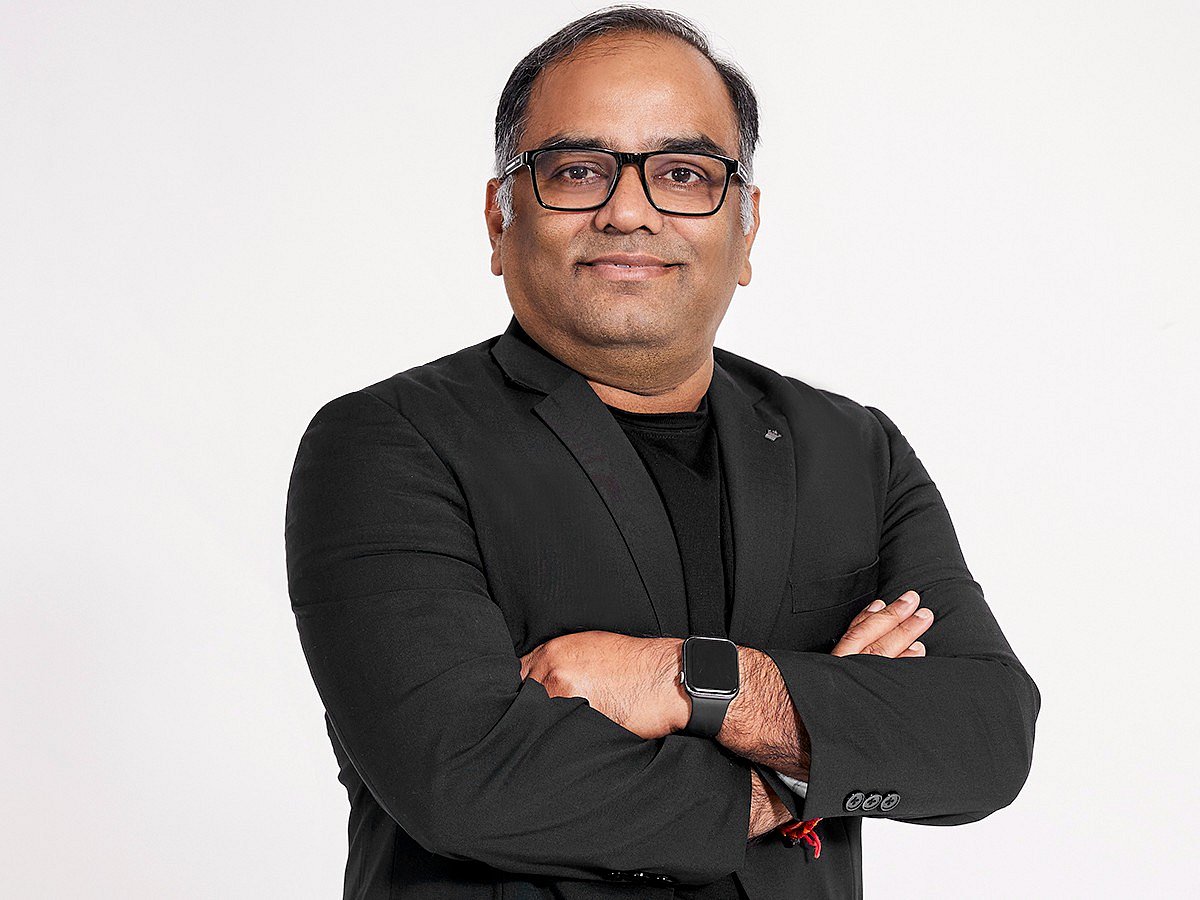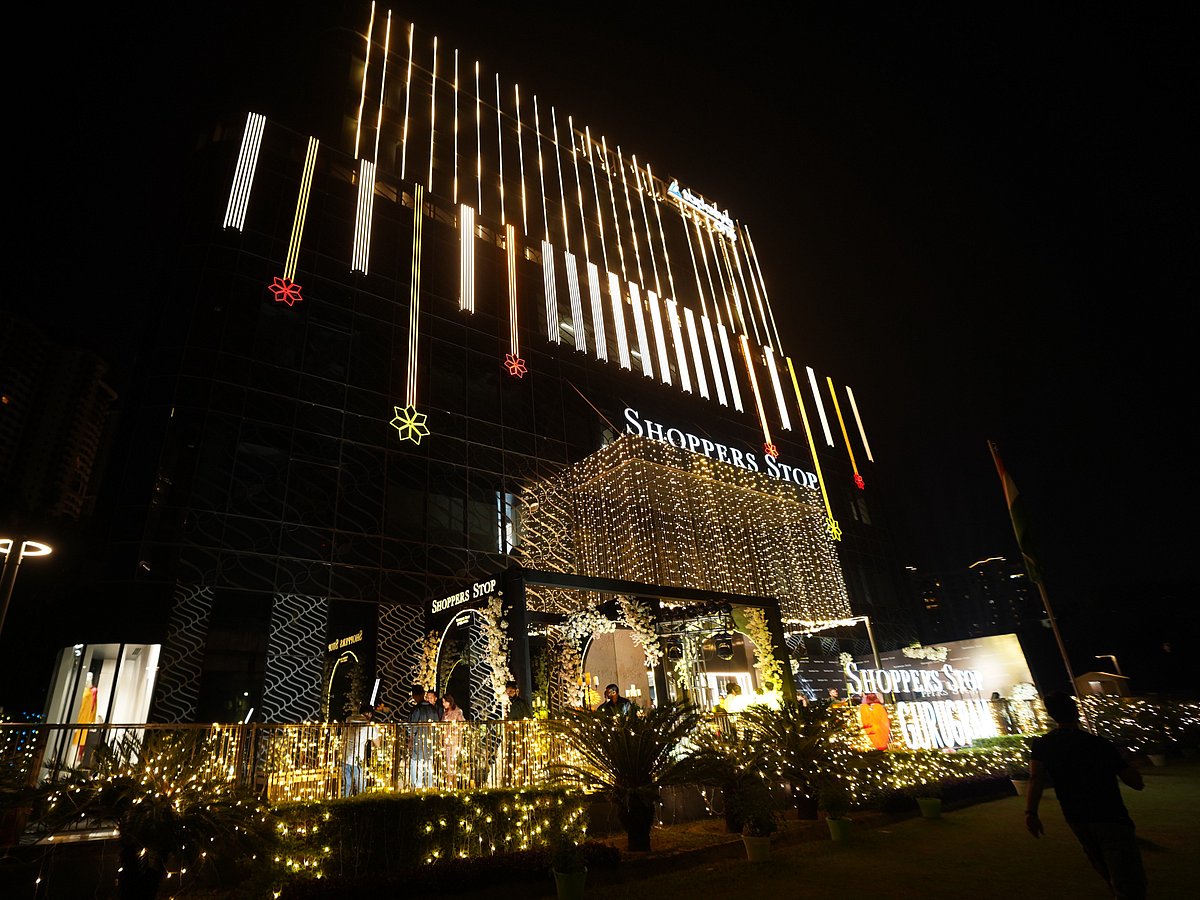Shoppers Stop’s Premiumisation Journey Is Elevating India’s Shopping Experience
Established in 1991, Shoppers Stop is India’s leading department store chain that has now embarked on a journey to reposition itself as a premium brand with a strategic focus on weddings. There is an emphasis on curated premium offerings, personalised services, and a tech-driven retail experience. Kavindra Mishra, MD & CEO of Shoppers Stop, shares, “We are fundamentally a fashion and lifestyle retailer. So, our first move was to elevate the product offering—the core of customer value.”
Premiumisation strategy: A top-down shift
Shoppers Stop has long had a strong presence in beauty, but under Mishra’s leadership, the company has significantly scaled up its premium brand portfolio across categories. Beauty remains a pillar with brands like Armani, Prada, Nars, and Estée Lauder. In sunglasses, nearly every global luxury brand—from Tom Ford and Gucci to Maui Jim and Prada—is available. In handbags, Guess, Armani and Da Milano make serious numbers. The apparel segment has expanded with the presence of a wide range of brands like Boss, Armani Exchange, Tommy Hilfiger, and Calvin Klein.
 Kavindra Mishra, CEO of Shoppers Stop
Kavindra Mishra, CEO of Shoppers StopShoppers Stop has identified five ‘power categories’ to drive premiumisation: beauty, handbags, footwear, sunglasses, and watches. “While many players are moving towards value retail, we are focused on building the top end—because that’s where our core customer resides,” he explains. Store metrics reflect this shift. Average bill values now hover around ₹5,800, with some stores touching ₹6,000, and the high-profile store in Tapasya One, Gurugram, has an average of ₹9,000.
Personalisation as a growth engine
The second pillar of premiumisation is personalised service, especially through the Personal Shopper Program (PSP). “PSP contributed 18% of revenue 18 months ago. Last year, it was 25–26%, amounting to over ₹1,000 crore,” Mishra shares. “That’s more than the entire revenue of many standalone fashion brands in India.”
This program is live across all stores, scaled according to size, and is powered by tech-enabled insights. Each shopper has access to customers' shopping history and preferences. “Many of our personal shoppers are so connected to clients that they’re even invited to their weddings,” he laughs.
Notably, only 2.5% of the workforce contributes to 26% of the business, demonstrating the efficiency of the model.

Shoppers Stop has also reimagined the in-store experience—adding kids' play zones, seating areas, and even gaming arcades in newer outlets. The newly renovated flagship Malad store in Mumbai saw retail space reduced by 60%, but productivity increased by over 50%. “Retailers typically chase square-foot revenue. But the experience we offer is priceless, and that’s our right to win,” Mishra says.
Data and tech fuel hyper-personalisation
With a CRM base of 1.3 million loyalty customers, the company boasts an 84% loyalty mix. Importantly, 40% of monthly bills are from new customers, showing strong acquisition.
Customer data is segmented across 32 behavioural parameters, allowing precise targeting and predictions—like suggesting the next brand a shopper might try based on previous purchases.
Shoppers Stop also uses QR code feedback systems across stores to gather real-time customer input in 22 languages—used for everything from store service to brand launches.
Weddings, the next big growth driver
Recognising the immense scale of the Indian wedding market, Shoppers Stop launched a trial wedding campaign in September 2024, called ‘India Weds with Shoppers Stop’. The concept is simple but powerful. Customers scan a wedding invite QR code to register. Once verified, they are assigned a personal shopper and receive access to exclusive offers, services (like bridal kits or makeovers), and curated collections.
In its first run between November–December 2024, the initiative clocked ₹100 crore in sales. A second phase in early 2025 added another ₹170 crore, and the goal this festive season (Nov–Dec 2025) is ₹150+ crore, taking the annual impact to ₹300 crore.
This initiative targets extended family and wedding guests, not just the bride or groom. “We're not competing with wedding couturiers like Sabyasachi. We focus on everyone around the wedding who needs apparel, beauty, footwear, gifting, accessories,” Mishra explains.
Participating brands curate exclusive merchandise, sometimes offering limited edition or capsule collections. Categories involved include beauty, watches, apparel, lingerie, bags, etc. Curated merchandise is available in-store for all but only registered shoppers get access to the special benefits.
Tier 2 and 3 Cities: the new luxury frontiers
Interestingly, Mishra sees a greater appetite for premium brands in Tier 2 and 3 cities than in metros. “In Delhi or Mumbai, customers have multiple choices. In cities like Raipur, we’re the only ones introducing international brands.”
Data backs this: premium brand performance is stronger in Tier 2 cities. Shoppers in places like Raipur, Patna, Ranchi, Lucknow, and Benares increasingly buy international labels, skipping private labels altogether.
He shares anecdotes of spotting multiple Louis Vuitton suitcases on a Benares–Mumbai flight and notes that mining money in Raipur has created an affluent, brand-hungry audience. In the south, he sees potential in markets like Hyderabad, Visakhapatnam, and Coimbatore—each showing strong consumption patterns and brand affinity.
Expanding travel retail
Shoppers Stop is also making strides in travel retail, with department store formats now in airports like Delhi Terminal 1, as well as smaller SS Beauty and SS Fashion formats in Bengaluru and Hyderabad airports.
“Globally, travel retail is more about brand building than profits. But our T1 store is doing good numbers,” says Mishra. The vision is to eventually roll out full-fledged departmental stores in major airports.
The road ahead
With a focus on premium products, personalised service, tech integration, and curated experiences, Shoppers Stop under Kavindra Mishra is building not just a department store but a lifestyle destination. “We’re not just here to sell; we’re here to help customers find what they didn’t know they needed,” he says.
news